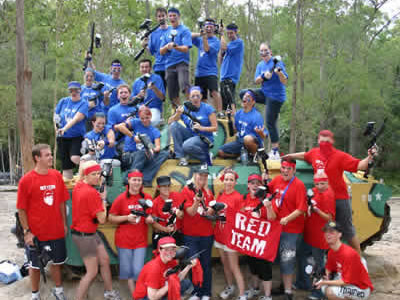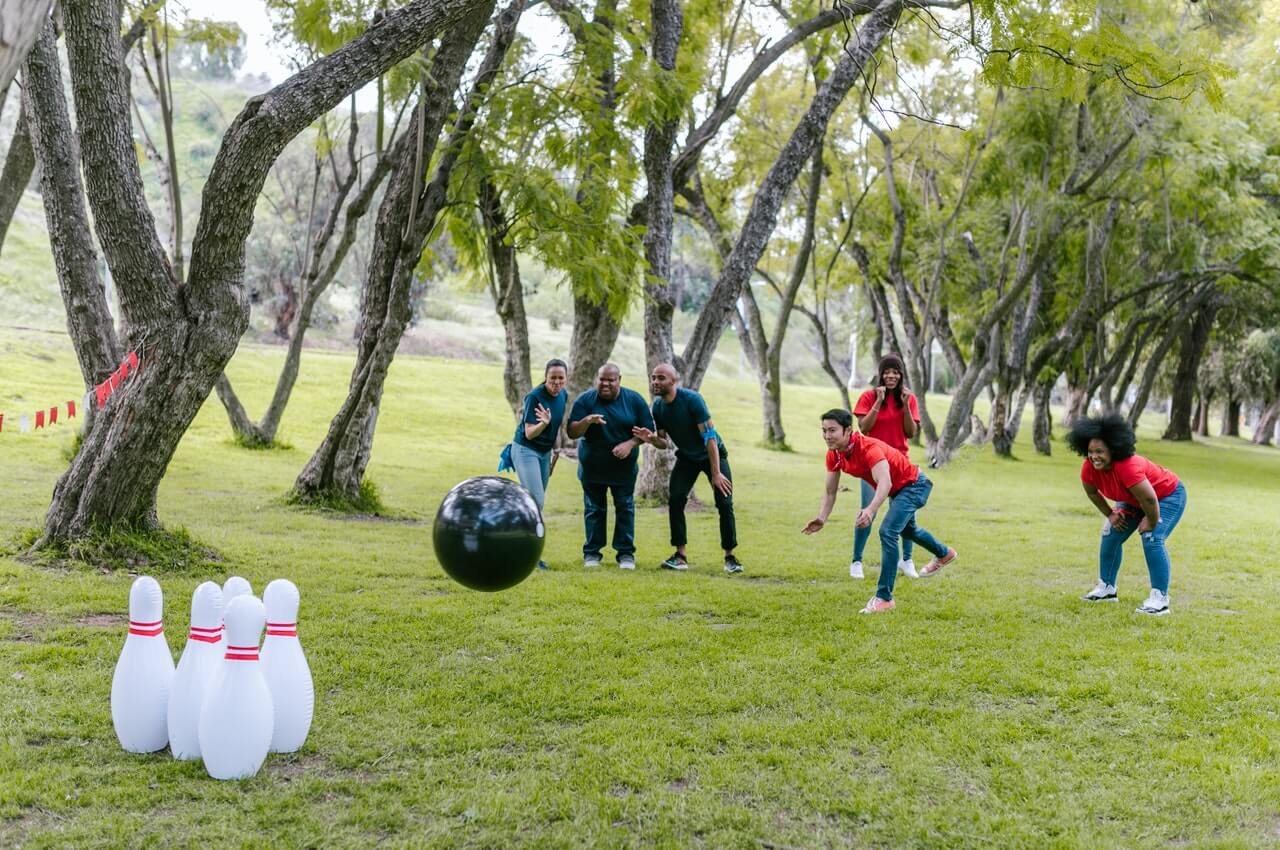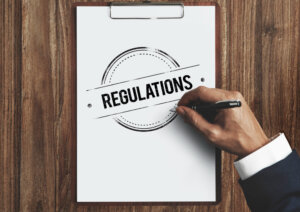An article in The Wall Street Journal* suggested that while team building exercises may be fun (for some people), they really don’t do much to solve workplace issues.

For example, sales executive Paul Garvey claimed that the most insightful team-building exercise he ever participated in involved paintball, which in no way helped to resolve the relationship issues back at the office. Speaking of his former company, he said that colleagues would poach each other’s deals while their manager played favourites. Someone decided a paintball exercise would help. It didn’t, and merely reinforced the divisions and favouritism already present.
Another instance of completely inappropriate team building involved the team from a contractor on an Apollo space project. They were asked by their HR department to participate in a role-playing exercise where they had to return safely from the North Pole. Their day-to-day job involved helping astronauts return safely from space. What additional insights into teamwork did HR think this role play could teach them?
The point is that these weren’t team building programmes at all, rather they were generic activities imposed upon teams without any real consideration for what the team wanted, or needed.
Similarly, while it may be fun and friendly, a corporate fun day involving inflatable suits where you hurl yourself at a Velcro wall, sumo wrestling a colleague, bungee running, quad biking, karting or clay pigeon shooting, won’t necessarily build team relationships or address any problems in the group. While it may be just the right event for a seasonal celebration, especially if it involves families or partners, this kind of “team build” is seen mainly as an informal motivational activity. ”They make us feel good,” said Margaret Neale, Professor of Organizational behaviour at Stanford’s Graduate School of Business. “What they don’t do is improve team performance.”
For this, you need a more considered approach and above all, something where the objectives are clearly stated and can be met. You need to take into account specific issues that need to be addressed and the sorts or personalities involved in the team. The resulting programme could well involve a ruthless battle for a trophy in an inflatable Olympics arena, but for a hard-working, hard-playing and highly competitive sales team, perhaps this might be exactly what’s needed.
For most, however, while it may be fun to get out of the office, you can’t expect that blasting each other with paint pellets is going to be much of an exercise in resolving trust or communication issues. Perhaps a programme involving something a bit more creative and less physical – indoors or outdoors – with plenty of time for discussion is a good place to start. There are always going to be those resistant to the very idea of “team building” or others whose comfort zone is very small. Acknowledging this and creating a programme that takes it into account is going to pay far bigger dividends than forcing them to jump out of aeroplanes or role play in Arctic expeditions.
——————
For more resources, see our Library topic Team Building.
——————
Blog by Fresh Tracks: Experts in Team Building, Team Development and Staff Conferences
Website: www.freshtracks.co.uk
*Based on an article by BY JARED SANDBERG, The Wall Street Journal
 Sections of this topic
Sections of this topic
















